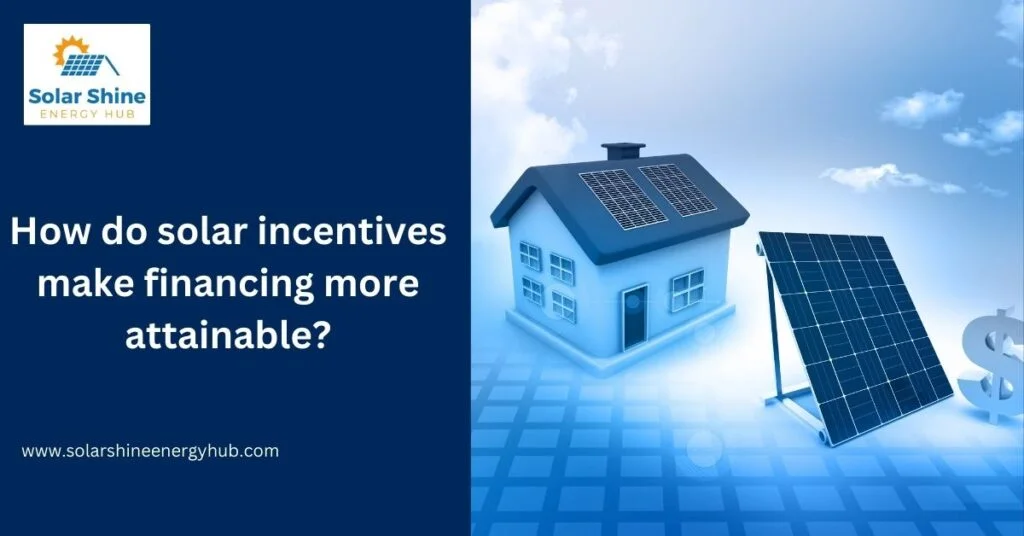Is it worth it to finance solar panels? Solar energy has emerged as an essential part of our collective move towards sustainability. The growing concern over fossil fuel depletion and environmental degradation enhances its relevance.
Financing solar panels can be a sound investment for homeowners and businesses, offering a direct answer to the rising energy costs and a step towards energy independence. It’s an opportunity to lock in lower energy prices for years.
Moreover, governments often provide incentives, such as tax credits and rebates, to encourage this transition. These incentives, coupled with financing options, can make solar installation more affordable, increasing its attraction as a practical and responsible choice.
What are the long-term savings from solar panels?
The long-term savings from solar panels can be substantial. Over the life of your solar system, you’re likely to save tens of thousands of dollars on electricity costs, depending on your usage and the cost of energy in your region. The savings also increase as utility prices rise over time.
Initial Investment vs. Long-Term Savings
The upfront cost of solar panel installation may seem daunting, but when measured against the long-term savings on electricity bills, it becomes an investment that pays for itself multiple times throughout its lifetime, typically around 25-30 years.
Increase in Property Value
Homes equipped with solar panel systems often experience an increase in property value. This is not only due to the energy cost savings but also because of the growing demand for sustainable living spaces among homebuyers.
Protection Against Rising Energy Prices
By financing solar panels, homeowners effectively lock in their energy rates, insulating themselves from the volatility of fluctuating energy costs. This can lead to predictable energy bills and provide significant financial relief over time.
How do solar incentives make financing more attainable?

Solar incentives play a critical role in offsetting the initial installation costs and making solar power a more viable option for many. These incentives can significantly reduce the financial burden on homeowners and businesses eager to adopt green energy solutions.
Incentives like tax credits can cover a substantial portion of the overall cost, easing the financial strain of the upfront investment. Specialized solar loans and leases also offer flexible payment plans that align with your savings on utility bills.
Moreover, the presence of incentives often indicates a supportive community and government stance on renewable energy. This can foster a more environmentally conscious mindset among residents and businesses, further propelling the adoption of solar energy.
Can solar panels significantly reduce household energy costs?
Solar panels significantly cut household energy expenses, making them a cost-effective, eco-friendly investment for homeowners.
Immediate Reduction in Monthly Energy Bills
- Immediate savings on monthly costs after installation.
- No reliance on fluctuating traditional energy prices.
- Solar power equals fewer kilowatt-hours from the grid.
- Frees up money for other household expenses.
- Energy bill predictability brings peace of mind.
Long-Term Energy Cost Stability
- Solar panels guarantee long-term fixed energy costs.
- Avoid unexpected hikes in utility rates annually.
- The longevity of panels ensures decades of savings.
- Increased energy independence from local utility providers.
- Savings continue as conventional energy costs rise.
Net Metering Benefits
- Excess energy can be sold back to the grid.
- Net metering credits can reduce bills further.
- Creates potential for zero net energy costs.
- Encourages efficient energy use within households.
- Strengthens the grid with clean, renewable energy.
Is financing solar panels a smart environmental decision?

Financing solar panels is undeniably a wise environmental decision. It allows individuals to contribute to a sustainable future by reducing carbon footprints and promoting clean energy.
Positive Environmental Impact
- Solar panels reduce reliance on fossil fuels significantly.
- Decreases harmful greenhouse gas emissions from energy production.
- Conserve natural resources by using abundant solar energy.
- Supports biodiversity by lessening habitat destruction for resources.
- Encourages the growth of green jobs and technology.
Reduced Carbon Footprint
- Solar power generates energy with minimal carbon output.
- Home solar systems imply smaller individual carbon footprints.
- Each kilowatt-hour of solar decreases CO2 emissions noticeably.
- Long-term use amplifies the positive impact on climate.
- A solar-powered home is a step towards sustainability.
Commitment to Renewable Energy
- Investing in solar is a proactive environmental commitment.
- Shows personal leadership in the move toward renewables.
- Inspires the local community to consider sustainable energy options.
- Financing solar reaffirms faith in clean energy technology.
- It aligns personal values with global environmental goals.
What factors determine the best solar financing options?
Identifying the optimal solar financing options requires considering a range of individual circumstances such as credit score, investment capacity, and long-term financial goals. A thorough evaluation ensures an informed decision that aligns with personal and environmental aspirations.
Credit Worthiness
Your credit score greatly influences the financing deals you can access. A higher score can unlock lower interest rates and better loan terms, making solar panel financing more economical over time.
Investment Horizon
Consider how long you plan to stay in your home. A shorter timeframe may favor leasing options or Power Purchase Agreements (PPAs) while owning the system could be more beneficial if you’re settling long-term.
Economic Incentives Availability
Check local, state, and federal incentives. Tax credits, rebates, and grants can significantly reduce your total investment and improve your return on investment timeline.
Conclusion Is it worth it to finance solar panels
In summary, transitioning to solar is a financial, environmental, and social power move. It secures your energy future while nourishing the planet and your wallet. Dive into solar—a brighter tomorrow awaits! Let’s harness the sun’s endless bounty together for a cleaner, greener world. Thank you for journeying with us through this enlightening solar landscape.